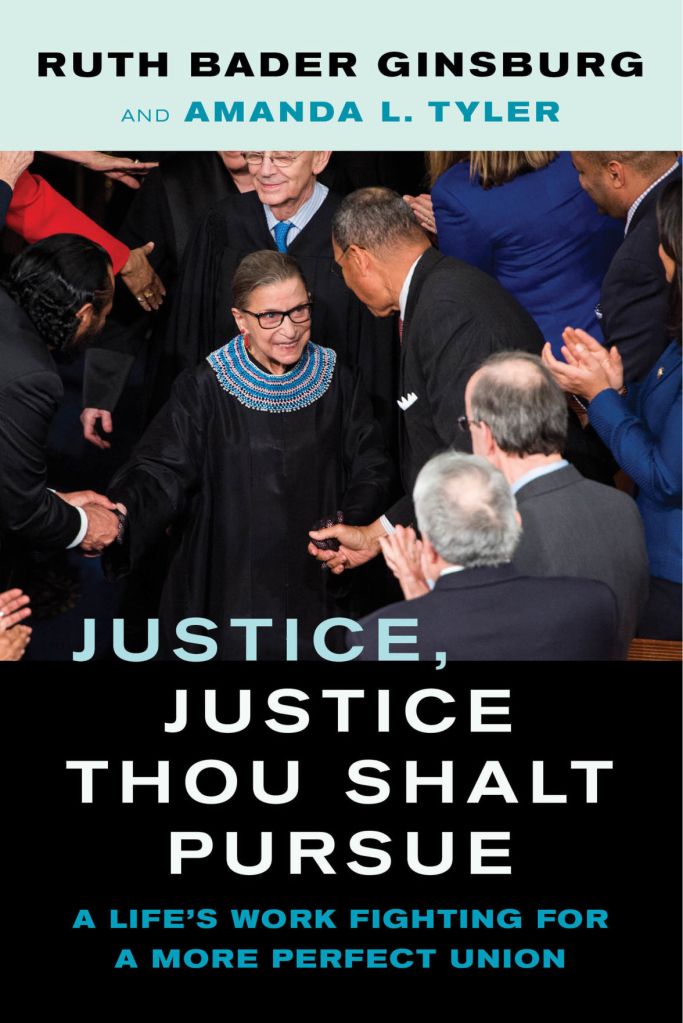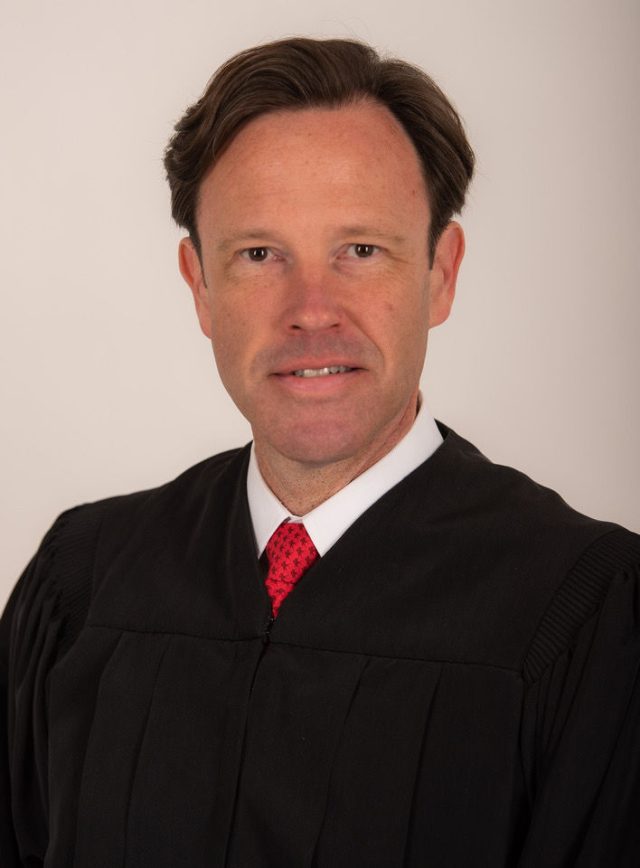Book review: ‘Justice, Justice Thou Shalt Pursue’
Published 12:00 am Sunday, April 25, 2021

- BOOK REVIEW
“Justice, Justice Thou Shalt Pursue: A Life’s Work Fighting for a More Perfect Union” by Ruth Bader Ginsburg and Amanda L. Tyler. University of California. 271 pp. $26.95. Review provided by The Washington Post.
Justice Ruth Bader Ginsburg chose her powerful words carefully. In interviews and conversations, her friends, law clerks and colleagues learned to wait patiently during the long pauses between our questions and her answers, as she composed her thoughts before offering a perfectly phrased response. (“I like to think before I speak,” she said when I asked her once in an interview about her unusual practice.) From judicial opinions and briefs to the drafts of speeches, letters and interviews, she insisted on reviewing each word, comma and semicolon that went out under her name, and she would return drafts with each sentence copy-edited with her meticulous pencil. The last collection of her writing that she authorized and edited is “Justice, Justice Thou Shalt Pursue,” sent to the publisher three weeks before she died.
Because each of Ginsburg’s words is so meaningful, this volume feels like a final gift. In 2019, Ginsburg visited the University of California at Berkeley School of Law, where she was interviewed by her former law clerk Amanda L. Tyler, who teaches there. She then authorized Tyler to publish the interview, along with an edited selection of her favorite briefs and oral arguments as an advocate, as well as her speeches and “bench statements” as a justice – that is, the spoken remarks she delivered from the Supreme Court bench summarizing her majority opinions and dissents. In each of the selections, as Tyler writes in her insightful introduction, “one sees that Justice Ginsburg acutely appreciates how the decisions of the Supreme Court impact the everyday lived experiences of all persons.”
Ginsburg’s attention to detail is obvious in the brief that she wrote with her husband, Marty, in a 1972 case, Moritz v. Commissioner of Internal Revenue, that became the basis for the movie “On the Basis of Sex.” “Charles Moritz, a never married man who cared for his mother, was denied a caregiver tax decision that a woman in his position would have received,” Tyler and Ginsburg write in their introduction to the case. “Representing himself in Tax Court, his brief was direct and straightforward, arguing: ‘If I were a dutiful daughter, I would get this decision. I am a dutiful son. It should make no difference.’ ” In their brief, the Ginsburgs argued that the law in question “capriciously prefers sons who are widowed or divorced to sons who are lifelong bachelors,” adding that the deduction would have been allowed if Moritz had engaged in a “matrimonial adventure” and had “married and divorced his housekeeper, or any other woman,” before the lawsuit. Their conclusion: “Fair and equal treatment for women means fair and equal treatment for members of both sexes.”
It is similarly inspiring to read the transcript of Ginsburg’s first oral argument before the Supreme Court, in the 1973 Frontiero case. As she approached the end of her argument, she had spoken for more than 10 minutes and the justices, remarkably, had not interrupted her with a single question. “I was at sea,” Ginsburg told Tyler in their interview. “I wondered, are they just indulging me because they don’t think I have anything worthwhile to say, or are they really listening.” In the hope that “something attention grabbing would help” the justices think in a new way, Ginsburg concluded with a quotation from Sarah Grimké, the feminist and abolitionist: “I ask no favor for our sex. All I ask of our brethren is that they take their feet off our necks.” “Thank you, Mrs. Ginsburg,” replied Chief Justice Warren Burger, who in another oral argument, in Weinberger v. Wiesenfeld, interrupted her with a series of off-topic questions that Ginsburg deftly brushed aside.
Ginsburg and Tyler include the “bench statements” Ginsburg delivered as a justice to explain her reasoning in four opinions she designated as her “favorites.” In her statement summarizing her dissent in the 2007 Ledbetter case, in which a majority of the court ruled that Lilly Ledbetter had waited too long to sue for pay discrimination under Title VII of the Civil Rights Act of 1964, Ginsburg memorably concluded, “Today, the ball again lies in Congress’ court.” In her interview with Tyler, Ginsburg noted: “In short order, with overwhelming majorities, Republicans as well as Democrats, Congress amended Title VII to adopt the paycheck theory. It was the first law President Barack Obama signed when he took office.”
It’s striking to read Ginsburg’s statement summarizing her 2013 dissent in the Shelby County case, which inspired a New York University law student to create the “Notorious RBG” meme. “The great man who led the march from Selma to Montgomery and there called for the passage of the Voting Rights Act foresaw progress, even in Alabama,” Ginsburg said, quoting Martin Luther King Jr.’s prediction that “the arc of the moral universe … bends toward justice.” She then emphasized, as Tyler notes in the afterword, that justice would be served only “if there is a steadfast commitment to see the task through to completion.”
This collection ends with a moving speech Ginsburg delivered at a naturalization ceremony for new citizens in 2018. The justice recalled that her mother, a bookkeeper, was born four months after her parents came by ship to Ellis Island. “What is the difference between a bookkeeper in New York City’s garment district and a Supreme Court justice?” she asked. “One generation.”
Tyler and other former law clerks stood vigil as Ginsburg lay in repose below the portico of the Supreme Court, before departing to become the first woman and the first Jewish person to lie in state at the Capitol. As she bore witness to the mourners coming to pay their respects, Tyler writes, “in their grief, we saw just how enormous Justice Ginsburg’s impact on this country has been.”
Ginsburg inscribed herself into American history with the shining conviction of her vision of a more perfect union, expressed in her powerfully and deliberately chosen words. Working until the very end, she was determined to leave us this final anthology, and all of her words are significant.
– Reviewed by Jeffrey Rosen, who is the president and chief executive of the National Constitution Center and a law professor at George Washington University.






